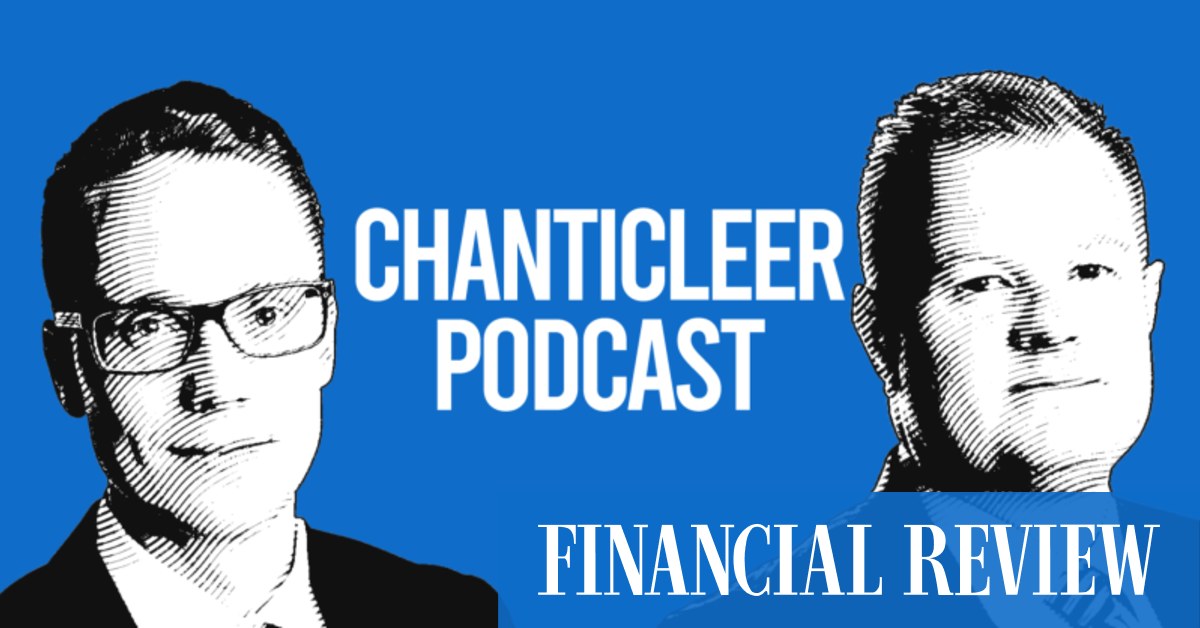It’s been an insane reversal of fortunes. Two weeks ago, the US 10-year bond yield hit 5 per cent, money was more expensive and the world was going to end. Then the US unemployment figures came out, it was a bit higher than expected at 3.9 per cent, up from 3.4 per cent, and that just changed everything.
The narrative has changed to [Federal Reserve] cuts, surgical cuts as people are calling them, to get the economy back on track, bond yields are back to below 4.5 per cent and that’s sending equities up so hence the rally. It’s been quite extraordinary.
James: The bear in me is struggling here. If the Fed is going to need to cut rates, that means unemployment is going to be going up, the economy is slowing, corporate profits are going to be coming down … that is not a good environment for equities.
RBA’s big call
Anthony: [Reserve Bank] governors have a long history of doing what they have to do. Philip Lowe most recently showed us that. He raised rates just prior to the election in 2022. That was the first rate rise that took the rate to a whopping 0.35 per cent which kicked off the rate rises.
Michele Bullock was there for all of that. She’s an RBA lifer, she knows that RBA governors have to do what they have to do, political pressure or not. The economic basis for this rise [on Tuesday] was that inflation looked like it was going to be above that 2 to 3 per cent range by the end of 2025, which is what the RBA has consistently said it wants to see.
James: There is an argument that choices governments are making, not just the federal government … are making it harder for Michele Bullock to bring inflation back under control.
We’ve got infrastructure programs going on all over the country. They are pushing up the price of raw materials and labour, adding to inflation. The other choice that the government has made is to turbocharge immigration. It’s running at about 500,000 people a year on an annualised rate. I’m hearing people suggest it could get up to 600,000 people a year on an annualised rate by the end of the year.
This is a genuine economic shock that’s doing stuff to the economy. You can see it obviously in rents and house prices, it’s fuelling demand, and that is actively working against what Michele Bullock wants to do. Population growth is good, immigration is good it helps grow the economy. There’s probably an argument that immigration has kept the economy out of recession because it’s created so much demand, but it’s definitely not helping Michele Bullock in her quest.
Optus incommunicado
Anthony: [The mishandled communication] is not the real issue … what’s going on with the network? Is there no back-up? Is this thing held together by sticky tape? Obviously, it’s an incredibly complex network, one-in-three people in the country use it daily and 99.9 per cent of the time, it works well. But in this case, it failed, and it’s not good enough for customers.
James: The telco sector is so competitive, it is an absolute war out there, margins are really skinny. So that’s the other thing that Optus needs to think about, how many customers do we lose here? They’ve done a bit of a data giveaway to keep them on board. It’ll be fascinating to see what else they need to do. Will they need to drop their prices? Prices for telco services have generally been going up with inflation.
Best of the Chanticleer column this week
It’s not just Optus’ network that has failed Network failures happen. But how the telco so badly botched its response to this episode, 12 months after its hacking disaster, is bewildering.
Macquarie’s Melbourne Cup tips team asked AI a smart question The firm’s quants turned to artificial intelligence to improve their race strike rate. There’s one thing they put to PunterGPT that investors can learn from.
Housing lies at the heart of the RBA’s inflation problem The RBA had little choice but to deliver a rate rise on Tuesday. But four forces, led by housing and immigration, will keep working against Michele Bullock.
Optus CEO Kelly Bayer Rosmarin is sorry – and a little defiant The under-fire chief denies the telco got its communications wrong over Wednesday’s outage. But a new hit to confidence in the group will hurt.
Westpac’s comeback comes at a cost in higher-for-longer world The profit jump looks impressive, but growth comes with pain in margins. Three factors will challenge Peter King’s goal of making the bank number No. 2 again.
‘Never see a year like that again’: NAB’s plan for banking’s grim reality CEO Ross McEwan thinks Australia can dodge a recession, but an intensely competitive mortgage market means he’s looking for growth elsewhere.
This week in The Fin podcast, Jessica Sier and Matthew Cranston on the great unravelling of SBF, what his guilty verdict means for crypto and why his legal troubles aren’t yet over.
